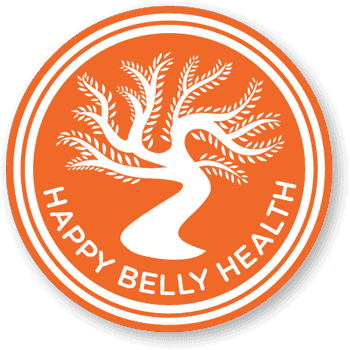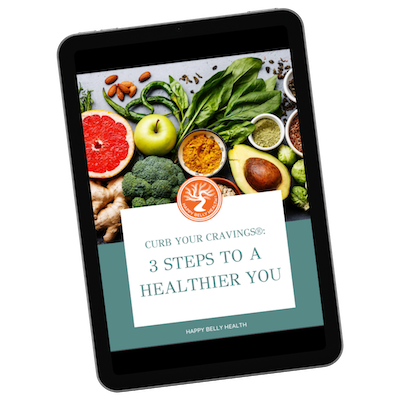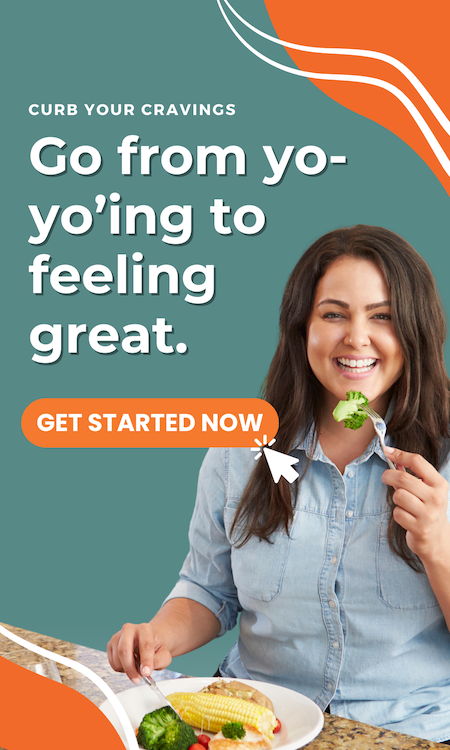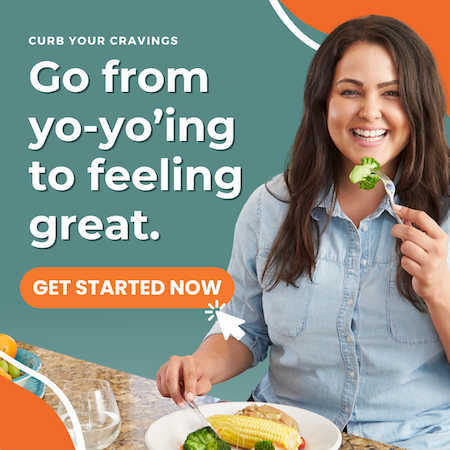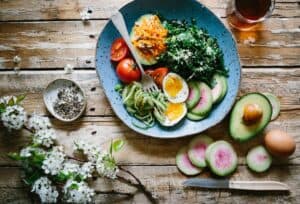The classic USDA Food Pyramid has been turned upside down as we’ve learned more and more about what “healthy eating” means and how personal it is. We spoke with Shanti Pappas, functional medicine health coach and owner of Happy Belly Health, which is based in San Francisco but serves clients everywhere. Shanti gave us the lowdown on ten healthy eating myths that actually aren’t true — at least for everyone.
Myth #1 — Counting calories is the best way to lose weight.
One of the biggest myths out there is that calorie reduction drives weight loss. Calories do play a role, says Shanti. But they’re not the whole truth. Our metabolism is constantly fluctuating, influenced by what we eat and how we live. And all calories are not created equal. Calories from an apple, for instance, metabolize differently than those from a donut. Severe calorie restriction is hard on the body, because it can suppress thyroid function and slow down our metabolism — in fact, overly restricting calories over time can permanently slow your BMR (basal metabolic rate). It’s also hard on the psyche, taking the fun out of food. And that’s no way to live.
Myth #2 — Exercise won’t necessarily make you skinnier either.
Exercise can help with weight loss, sure, but it works in concert with our factors — like how you eat, and what’s going on with your hormones and your stress level. Over-exercising can actually backfire because it makes you more hungry and more susceptible to binge-snacking. It also causes oxidative stress in your body, which makes long-term weight loss difficult, Shanti says, Where exercise can help with weight loss is by helping you build muscle. The more lean muscle you have, the more calories your body burns even while sleeping.
Myth #3 — Cholesterol is always bad.
When people hear “cholesterol” their gut reaction is “avoid.” But the truth is, we need cholesterol in our bodies. In fact, most of the cholesterol in our bodies is actually made in our liver, and regularly helps heal cellular damage and create important hormones. Supplementing with good fats in our diet actually helps, not hurts, our cardiovascular situation — things like omega-3 fats found in good quality fish oils. The problem is when the cholesterol that we ingest becomes “damaged” by exposure to heat and oxygen during processing, which happens with products like powdered eggs and milk that get hyper-processed, and in meats and fats that are fried and otherwise overly heated. Damaged cholesterol can promote injury to cells and a “pathological buildup of plaque in the arteries,” according to The Weston A. Price Foundation. It’s not about avoiding cholesterol, but rather making healthier choices about your fat consumption. “If people are concerned with cardiovascular health,” says Shanti, “I recommend they talk to their cardiologist about requesting a test that measures the quality and size of the cholesterol vs the number.”
Myth #4 — To be healthy, you should avoid eating fats.
Like cholesterol, fat is something we need in our diet — but the right kind of fat is important. Monounsaturated fats like olives, nuts, avocados (and the oils made from them) are good for us. These are typically oils made simply by pressing a fruit, nut, or seed, without a lot of heat processing. Even saturated fats like butter and coconut oil are nutritious in small quantities and necessary for good health. The fats that are best to avoid are the polyunsaturated group — things like vegetable oil, corn oil, and peanut oil. And unfortunately, these are the ones most often used in restaurant cooking, because they’re cheap and have a long shelf life. Which is why Shanti is such a big advocate of learning to cook at home. Oh and trans fats? The ones you find in things like french fries, crackers, and all sorts of yummy snacks? Those are never healthy.
Myth #5 — You need exactly eight glasses of water every day.
Eight glasses of water a day should be your goal, according to the myth. But if you live in a very dry climate or you’re working out a lot, you need more water. Shanti recommends kick-starting your metabolism with a glass of warm water every morning (perhaps with lemon) and making sure to hydrate all day long — preferably between meals, not with them. Most people find they feel great with eight glasses, but if you’re also consuming a lot of diuretics, like coffee, tea, alcohol, soda, or medication, or you’re sweating a lot, you need more. If you’re suffering from headaches, constipation, fatigue, brain fog, soreness, or out-of-place hunger, try more water every day. “It’s amazing what a little more water can do,” says Shanti.
Myth #6 — The more supplements, the merrier.
Supplements can help, says Shanti, but the quality of supplements is so important. A lot of people self-prescribe with cheap, poor quality supplements they hear about on Google or Amazon, and sometimes they can do more harm than good. A professional nutritionist, physician, or alternative medicine practitioner can recommend the right supplements — and the best brands — for your particular needs. And getting nutrients from food is always ideal, so Shanti recommends learning more about how you can balance your diet before you introduce a battery of pills without supervision.
Myth #7 — Eating breakfast just makes you hungrier faster.
We all know that “breakfast is the most important meal of the day,” but so many of us avoid eating it anyway. We don’t have time, we’re not hungry in the morning, and besides, eating first thing just makes us hungrier sooner. Right? The truth is, the right kind of breakfast sets us up for better eating throughout the day — and by “right kind,” Shanti says, your breakfast must contain fat and protein. Eating fat and protein early in the day will sustain you for longer, help curb refined carbohydrate cravings later on, help you burn fat for fuel, and generally increase satiety.
Myth #8 — Brown sugar is healthier.
Sugar is sugar is sugar is sugar is sugar, says Shanti. There are a lot of different types of sugar out there. Generally, if it ends with “ose,” it’s sugar: sucrose (white sugar), lactose (milk sugar), glucose (corn sugar), fructose (fruit sugar). Brown sugar is regular white sugar suspended in molasses, often with color and flavor added. Sugar substitutes like sorbitol and mannitol are not sugar, but they’re actually worse for you in a lot of ways. And honey has a lot of health benefits, but at the end of the day, if you’re avoiding sugar, you have to add this one to the list. On a positive note, with a balanced, mindful diet to influence your palette, you should be able to satisfy your cravings with things like sweet vegetables and fresh fruits.
Myth #9 — Juice cleanses, diets, and detoxes are the same thing.
A lot of people think that a juice cleanse or a simple diet is the same thing as a detox program. Actually, says Shanti, a cleanse is merely a break from the foods and habits that are causing your body stress and overload. The best way to cleanse, in fact, is to have a regular “stop” time for your eating every night that gives you a good 12-hour break from food on a daily basis. Wake up with warm water, and you’re cleansing!
Myth #10 — You can’t make cravings disappear with will alone.
Cravings are one of the ways our body tells us that we’re living out of balance with what we need. When we crave foods that don’t have a lot of nutritional value — like white flour and sugar — it’s because our body has become dependent on those things. They can be just as addictive as alcohol and caffeine. Fighting against your cravings without changing your habits won’t work; you have to alter your way of eating to rebalance your system and respect what your body truly needs underneath all those basic cravings.
